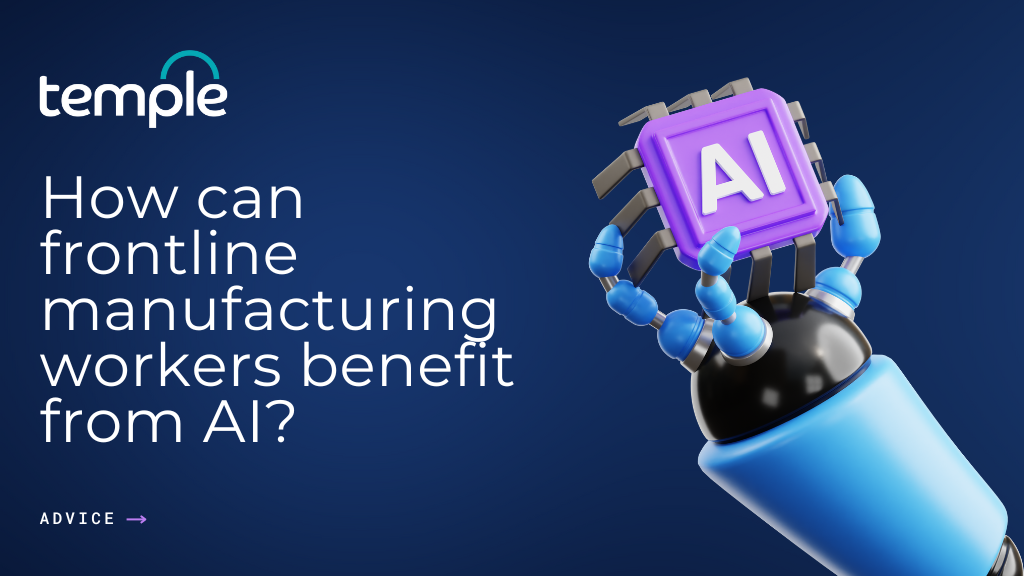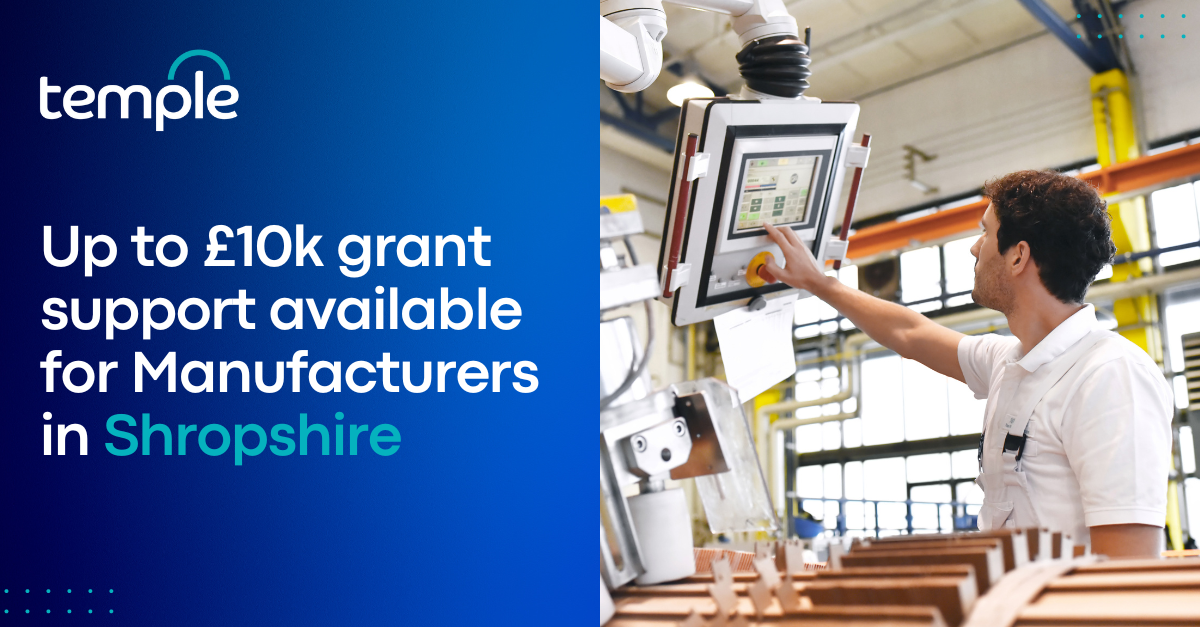
The PSTI Act, a new cyber security law in the UK, takes effect today.
The 29th of April 2024 is an important date for IoT manufacturers and anyone selling connected devices in the UK. This brand new and world-leading

The resurgence of domestic manufacturing in the United States, akin to the trend observed in the UK, is a response to the vulnerabilities exposed by supply chain disruptions, geopolitical tensions, and the global pandemic.
The Skills Gap
One of the critical challenges faced in this resurgence is the acute skills gap in the manufacturing workforce. Even if all unemployed individuals with experience in durable goods manufacturing were employed, the industry would only fill around 75% of the vacant jobs, as per a report by the US Chamber of Commerce.
To bridge this skills gap and enhance supply chain resilience, the manufacturing industry is turning to artificial intelligence (AI) for solutions. Traditional training methods are insufficient in addressing the rapidly changing demands of modern manufacturing technologies. Companies are increasingly adopting AI-driven platforms to provide continuous and personalised training experiences for their employees. These platforms identify skill gaps, offer tailored training modules, and ensure that employees’ competencies align with the evolving demands of the organisation.
Operationalising learning through AI involves integrating learning processes into the everyday work of frontline workers. AI-based advanced analytics enable data-driven improvements in work processes, individual and team performance, and overall operational efficiency. These AI-powered solutions customise training to individual skill levels, allowing workers to learn at their own pace and receive guidance based on their job performance. Real-time monitoring of worker performance provides instant feedback and access to content to resolve issues promptly.
Investing in employees’ skills development not only helps organisations achieve operational goals but also benefits frontline workers. Engaged employees experience higher wellbeing, better retention, lower absenteeism, and increased productivity. Moreover, robust training opportunities create a sense of purpose and progress among employees, leading to higher job satisfaction and retention rates.
Upskilling and reskilling initiatives in manufacturing organisations go beyond improving retention and morale. They elevate product quality, increase productivity, enhance efficiency, and foster adaptability in the face of technological advancements. These advantages not only improve the bottom line but also position the organisation as a forward-thinking and attractive employer in the competitive manufacturing landscape.
AI-powered training, with its real-time skills training, on-the-job guidance, enhanced productivity, and optimised operational efficiency, empowers manufacturing workers to meet the evolving demands of their jobs. In an era where manufacturing is rapidly evolving, embracing AI technologies is not just an option but a necessity for the industry’s future growth and competitiveness.
One effective approach to address the skills gap in manufacturing is by integrating learning directly into the operational processes, leveraging artificial intelligence (AI) and connected worker technology. Operationalising learning means adopting a systematic training and workforce development strategy, moving away from one-time events.
Continuous skills development is vital in the fast-paced world of modern manufacturing, where technology evolves rapidly. AI-based advanced analytics facilitate data-driven enhancements in work processes, individual and team performance, and overall operational efficiency.
AI-driven training platforms personalise learning experiences for each employee, identifying skill gaps and providing tailored training modules. This not only boosts workforce competency but also ensures that skills align with the organisation’s evolving demands.
AI-powered solutions enhance learning accessibility, engagement, and effectiveness. By integrating training into daily operations, manufacturers cultivate a culture of continuous learning and improvement. AI enables organisation’s to seamlessly integrate learning processes into the everyday work routine of frontline workers, bridging the gap between knowledge and practical application.
Additionally, AI-powered learning solutions can be tailored to each worker’s skill level, enabling them to learn at their own pace and match their experience level. By harnessing data, these tools deliver precise training to workers when needed, offering hands-on learning experiences based on their actual job performance. They provide instant guidance and, if necessary, immediate reskilling.
Real-time monitoring of worker performance by AI-powered solutions allows for instant feedback, aiding workers in improving their skills and accessing relevant content to resolve issues promptly.
Investing in employees’ skill development not only ensures operational success but also benefits frontline workers significantly. Gallup’s Employee Engagement index illustrates that engaged employees experience higher well-being, better retention, lower absenteeism, and increased productivity.
Workers who feel valued are more likely to stay. Providing them with daily training and support not only saves organisation’s time and money but also fosters a sense of purpose and progress. Gallup’s survey highlights that half of US workers are unsure about what is expected of them, with a third of respondents expressing the need for more opportunities to learn and grow at work.
Organizations offering comprehensive training opportunities enable their employees to advance within the company, instilling a sense of purpose and progress.
Upskilling and reskilling initiatives in manufacturing extend beyond improving retention and morale. They serve as powerful tools to enhance product quality, increase productivity, improve efficiency, and foster adaptability in the face of technological advancements. These advantages not only improve the bottom line but also position the organisation as a forward-thinking and appealing employer in the competitive manufacturing landscape.
Supporting manufacturing workers is vital for the resurgence of U.S. manufacturing and the overall resilience of the supply chain. Addressing the skills gap in the industrial sector is crucial, and AI emerges as a powerful tool in this endeavour. By offering real-time skills training, on-the-job guidance, enhanced productivity, and optimised operational efficiency, AI empowers manufacturing workers to meet the evolving demands of their jobs.
In the evolving landscape of manufacturing, embracing AI technologies is not merely an option but a necessity for the industry’s future growth and competitiveness.

The 29th of April 2024 is an important date for IoT manufacturers and anyone selling connected devices in the UK. This brand new and world-leading

Dave Treadwell, VSUK Quality Manager and subregion Coordinator for VSNE covering Holland and Germany, takes us through his experience of becoming a CQI Fellow and

Temple QMS is delighted to be supporting the roll out of new grant funding in the Shropshire region. We will be supporting SME manufacturing businesses

Global Compliance – Online event This presentation from Management Consultant Peter Lee, will be held 15 May 2024 – 19:00 – 19:45 CE and UKCA